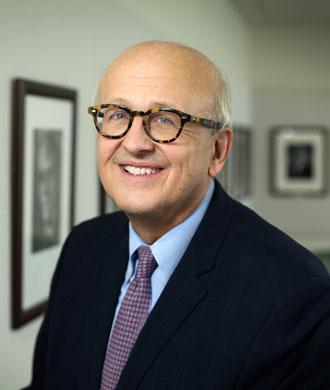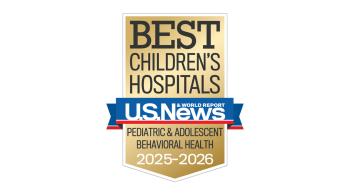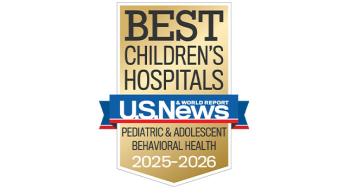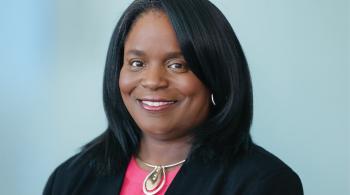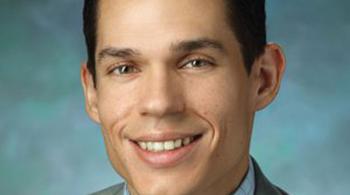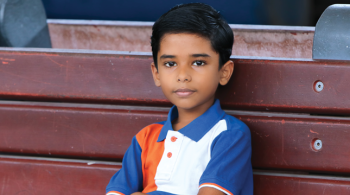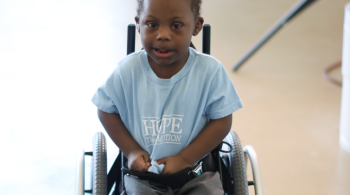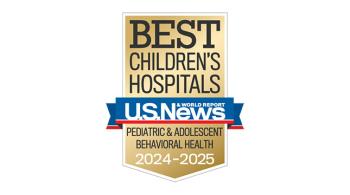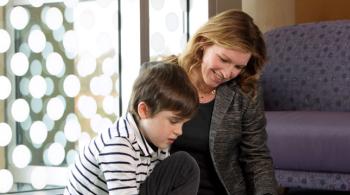In this third episode of Your Child's Brain, a podcast series about the mysteries of the child’s developing brain, we discuss mental health and the impact on children and teenagers.
- Carmen Lopez-Arvizu, MD, Medical Director, Psychiatric Mental Health Program, Kennedy Krieger Institute.
- John Campo, MD, Vice President of Psychiatric Services, Kennedy Krieger Institute and Director of Child and Adolescent Psychiatry at The Johns Hopkins Hospital.
Learn More About Our Featured Speakers
Learn More About Our Featured Speakers
View Episode Transcription
John Campo (JC): Welcome to Your Child's Brain, a podcast series produced by Kennedy Krieger Institute in partnership with WYPR. I'm Dr. John Campo. I am the director of child and adolescent psychiatry at Johns Hopkins and the vice president of psychiatric services at Kennedy Krieger Institute. I am really happy to be here today. My own training is in child and adolescent psychiatry and psychiatry. I originally trained as a pediatrician. My colleague here, Dr. Lopez, I'll look to you and ask you to maybe tell folks a little bit about yourself.
Carmen Lopez-Arvizu (CL): I am Dr. Carmen Lopez-Arvizu. I am a child psychiatrist by training and I'm also general psychiatry trained. It is my mission to address mental health in children and adolescents, especially those with neurodevelopmental disabilities. It's about taking care of the whole child, the physical health, their mental health, and the family because a child cannot be just treated independently of their surroundings. Talking about surroundings, there's so much that has happened in the last couple of years and the things that we're seeing now are exacerbated in a way. But what are you seeing in the inpatient unit in the emergency room right now?
JC: We've all been living through this pandemic and we certainly know that parents have had a lot of things to be concerned about during this time. I mean, there's been the potential for a lot more financial stress for families, the routines of families, of kids, have been disrupted, there's been a lot more social isolation, and sadly, for a lot of families, there's been real loss of family members. There's been, to some degree, greater risk of family discord during the pandemic. The pandemic's produced some pretty significant changes in how kids are being educated, how they relate to their friends, to their family, to their community, and it's had some impacts for sure on academic achievement. Plus a lot of kids have found online learning to be particularly stressful. It's a difficult time. We are seeing more intense and difficult to manage symptoms in our patients. We're seeing a number of patients presenting to emergency departments and we're finding that, compared to in the past, it's been more difficult to get people better. What have you seen? I mean, you work primarily in the ambulatory setting, what have you seen there?
CL: In the outpatient setting, it's very similar. I think what we have seen is the effect of being together too much in the families. The difficulty with accessing services that was already in significant shortage, now it's worst because so many clinics are not open or for so many people, the reality of telehealth and access of care can be very complicated. We have been very successful here at Kennedy Krieger. However, there's a group of population that connecting through the screen has not been necessarily efficient. We have had a lot of difficulty as well with families in the sense of staying afloat with the changes in childcare, the changes in school structure, the changes in work. Some people have the ability to work remote but some other parents have to go to work regardless. That has also affected their own mental health, making it complicated in the family dynamics setting. What we are seeing the most in diagnosis in the outpatient setting is definitely anxiety, that is through the roof. How do you recommend for parents? What should they be looking for? Start being concerned, this is different. Is my child doing well? Are they tolerating the life as we're living it now correctly or are there any red flags that they should be looking for? What would you suggest to them?
JC: I guess what I would say is I always want to begin by helping parents to trust their own instincts first. But if they have questions or if they're unsure, I think your primary care doctor, your pediatrician, your family doctor, this is always a great place to start. Sometimes there are counselors through the school that can be helpful as well. I think everyone's been worried about what effect the pandemic might have on mental health in general in young people and particularly, the risk of suicide in young people. What I can tell you is there's some reason to think interestingly that actual deaths by suicide among young people might have either stayed the same or gone down a little bit right at the beginning of the pandemic. How that is going to pan out over the course of the pandemic at this point, we don't know. Regardless of whether suicide risk is increasing during the pandemic, staying the same during the pandemic or even going down during the pandemic, the point I guess I would make is a lot more young people will die from suicide than from COVID. The numbers aren't even close. The other point is that COVID or not, suicide rates in young people have been increasing for more than a decade now. In some respects, one of the questions that I think we should be asking is why it's taken a global pandemic to get us to pay attention to the reality of what's been in front of us for more than a decade, which is that suicide is the second leading cause of death in young people. Probably if you look at school age children and adolescents, of all the deaths, one of five are from suicide.
CL: I agree. I think one of the realities of this is that stigma has a big part on this. People do not seek mental health because they're embarrassed. They think I'm not crazy, I don't need that, that's for people that are sick, whatever. I think stigma still remains a barrier for accessing care. There's always the uncle that says you shouldn't be going to treatment, that kind of thing that makes things difficult.
JC: Aside from being able to speak to the primary care doctor, to connecting with a mental health professional. Should there be an emergency? Emergency departments are certainly, while we think about them as a last resort, if you're feeling that your child is in significant danger, you can always call 911 or go to the emergency department. But there are some other numbers that are really easily accessible that you can have. One is the National Suicide Prevention Lifeline. A parent or a young person can call 1-800-273-8255. There's also crisis text line where people can text home, H-O-M-E, to 741741. There are resources out there. There are people that want to help and there are other people who are struggling with the same thing.
CL: I think the final message here that I would want to tell people is yes, keep a watchful eye and if you have concerns, reach out. Do not let the stigma of mental illness interfere with your ability to access help. That's what we're here for, that's our mission. I think it's important that you put the child first. The stigma doesn't matter.
JC: Pandemic or no pandemic.
CL: That's right, pandemic or no pandemic.
JC: Well, you've been listening to Your Child's Brain. Your Child's Brain is produced by Kennedy Krieger Institute in partnership with WYPR and producer, Mark Gunnery. Please join us next time as we examine the mysteries of your child's brain. [MUSIC]

